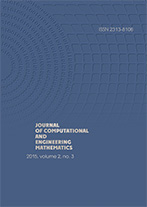|
This article is cited in 7 scientific papers (total in 7 papers)
Engineering Mathematics
On adequacy of the mathematical model of the optimal dynamic measurement
Yu. V. Khudyakov
South Ural State University (Chelyabinsk, Russian Federation)
Abstract:
We propose an approach to increase the adequacy of the mathematical model of an optimal dynamic measurement. The approach is based on obtaining additional information about the measured process. The information is presented by a set of admissible measurements. We are the first to consider a set of admissible measurements as an intersection of convex sets, where each set characterizes the measured process on a given time interval or part of the interval. The model of optimal dynamic measurements allows numerically reconstruct a dynamically distorted signal as a solution to the problem of optimal control. The model of optimal measurements contains the following elements: 1) the Leontief type system modeling a measuring device (MD); 2) the initial Showalter - Sidorov condition specifying the initial state of the measuring device; 3) the functional of quality, which is used, first of all, to achieve the proximity of real and virtual measurements; 4) the criterion of optimality, that is a search for the minimum value of the quality functional and the optimal measurement at which the value is achieved; 5) the set of admissible optimal measurements, which contains the optimal dynamic measurement. We suggest changes in the numerical algorithm proposed by the author earlier. A new version takes into account the importance of the available information on the set of admissible measurements. The results of computational experiments are presented.
Keywords:
Leontief type system, theory of optimal dynamic measurements, optimal control, set of admissible measurements.
Received: 07.06.2017
Citation:
Yu. V. Khudyakov, “On adequacy of the mathematical model of the optimal dynamic measurement”, J. Comp. Eng. Math., 4:2 (2017), 14–25
Linking options:
https://www.mathnet.ru/eng/jcem87 https://www.mathnet.ru/eng/jcem/v4/i2/p14
|

|




 Contact us:
Contact us: Terms of Use
Terms of Use
 Registration to the website
Registration to the website Logotypes
Logotypes








 Citation in format
Citation in format 
